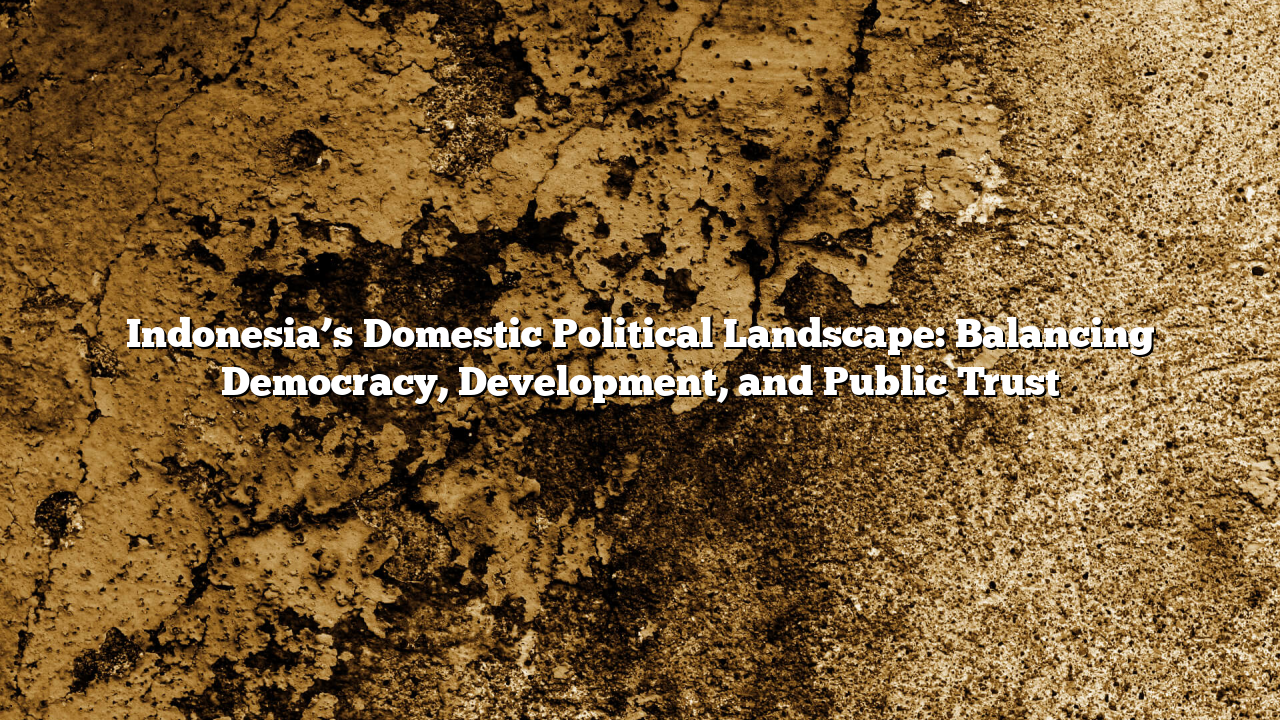Indonesia, the world’s third-largest democracy, has undergone significant political transformations since the fall of the New Order regime in 1998. Over the past two decades, the country has embraced a decentralized democratic system, regularly holding free elections at both the national and regional levels. Despite these advances, domestic politics remain shaped by complex interactions between political parties, grassroots movements, regional autonomy, and the ongoing challenge of maintaining Pattimura4d public trust in democratic institutions.
One of the defining features of Indonesian domestic politics is its multi-party system. With more than a dozen officially recognized political parties competing in elections, coalition-building has become a necessity rather than an option. This has created a political culture where alliances often shift, driven less by ideology and more by strategic power-sharing. As a result, Indonesian governments are frequently built on broad coalitions that must navigate internal differences to pass legislation and implement policies. While this ensures representation for a wide range of interests, it can also slow down decision-making and lead to compromises that dilute reforms.
The decentralization policies introduced in the early 2000s have also reshaped Indonesia’s political structure. Power and resources have been transferred from the central government in Jakarta to regional administrations across the archipelago. This shift has allowed local governments to address region-specific needs more effectively, but it has also created new political dynamics, including the rise of local political dynasties. In some regions, governance has improved due to responsive leadership, while in others, decentralization has fueled corruption and nepotism at the local level.
Corruption remains a persistent issue in Indonesian domestic politics. The Corruption Eradication Commission (KPK) has been at the forefront of tackling high-profile cases involving ministers, governors, and even members of parliament. Public support for the KPK remains strong, but recent attempts to weaken its authority have sparked concerns among citizens and civil society groups. These developments have highlighted a broader debate about political accountability and the need for stronger safeguards against the misuse of power.
Social media has emerged as a powerful force in shaping political discourse. Platforms like Twitter, Instagram, and TikTok are not only used by politicians to reach younger audiences but also serve as battlegrounds for competing narratives. While online engagement has encouraged political participation, it has also amplified the spread of misinformation and polarized public opinion. This dual nature of digital politics presents a challenge for maintaining healthy democratic dialogue.
Identity politics has also played a notable role in Indonesia’s domestic affairs. Religious and ethnic affiliations sometimes influence voter preferences, especially during highly competitive elections. While diversity is one of Indonesia’s strengths, the politicization of identity can deepen societal divisions if not managed responsibly. Political leaders have a crucial role in promoting inclusivity and preventing sectarian tensions from undermining national unity.
As Indonesia looks ahead to its upcoming political cycles, economic recovery from the COVID-19 pandemic will remain a central priority. Issues such as job creation, infrastructure development, and environmental sustainability will require careful policy planning and broad-based cooperation. Political leaders will be tested not only on their ability to deliver tangible results but also on their commitment to democratic values and transparency.
The future of Indonesia’s domestic politics will depend on the balance between reform and stability. Citizens increasingly demand not just development, but also good governance, clean politics, and genuine representation. Strengthening democratic institutions, protecting the independence of anti-corruption bodies, and ensuring fair competition among political actors are essential steps toward achieving these goals.
Indonesia’s democratic journey is far from over. The nation’s ability to navigate political challenges—while preserving unity across its vast and diverse archipelago—will determine how it positions itself in the decades to come. In this ongoing story, the role of informed and engaged citizens will be as crucial as that of political leaders in shaping the country’s future.
